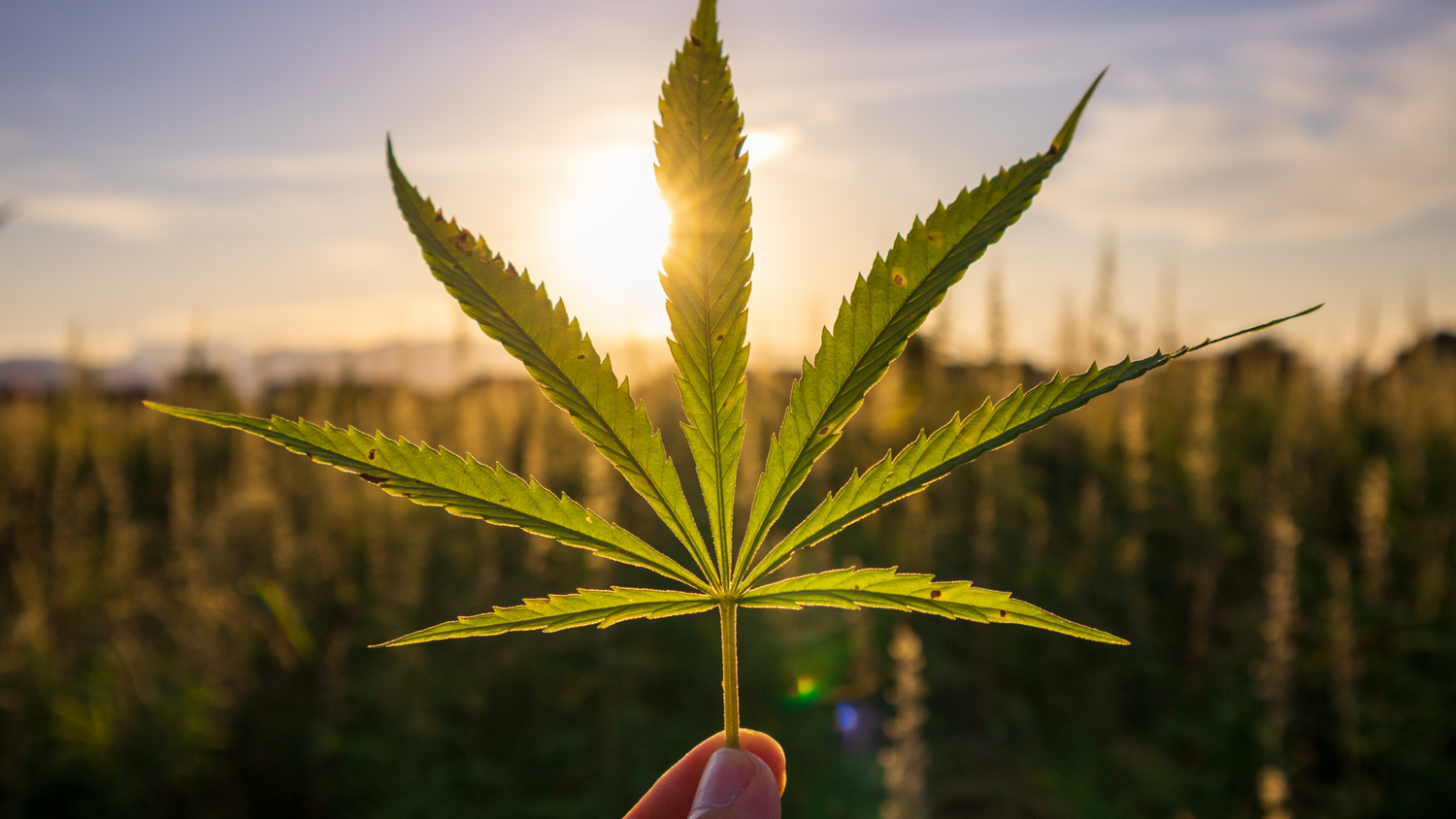Hemp Seed Oil vs. CBD Oil: What’s the difference?
Since CBD and hemp-based products have been rapidly gaining popularity, it has led to massive confusion, misinformation, and misuse of terminology. The ever-changing laws and regulations have only added to the confusion. Since all of these products come from hemp, how are they different? How can you tell what you are paying for?
To understand the difference between “hemp seed oil” and “CBD oil”, let’s first start with the terminology.
- CBD Oil: Extracted from the whole plant, or the leaves and flowers. Contains high concentrations of CBD and other cannabinoids and terpenes.
- Hemp Oil: A broad term that could potentially refer to any oil extracted from the hemp plant.
- Hemp Seed Oil: Extracted from hemp seeds. Hemp seed oil does not contain any cannabinoids and is often used for cooking or in beauty products.
- Hemp Extract Oil: Could potentially refer to any extract from the hemp plant. Typically refers to whole plant extract, is often interchanged with CBD oil.
What is Hemp Seed Oil?
Hemp seed oil, comes from - you guessed it - the seed of the hemp plant (Cannabis sativa). The seeds do not contain CBD, but they have a variety of other beneficial qualities that make them desirable, including fatty acids and bioactive compounds.
What is in Hemp Seed Oil?
Hemp seed oil has omega-6 and omega-3 fatty acids, Gamma Linolenic Acid and other antioxidants. It also contains vitamins B and D. Because it doesn’t come from the leaves or flowers, it does NOT contain any cannabinoids, such as CBD or THC.
What Can Hemp Seed Oil do?
The oil is primarily used as a nutritional supplement in food or in skincare products, because of the composition of fatty acids and vitamins. Hemp seed oil is also sometimes used in the production of fabrics.
Because of the nutritional content, it can be good for your cholesterol and triglycerides, all of which benefit your cardiovascular health. Other possible benefits may include improved digestion, enhanced immune function, and healthier skin.
What is CBD Oil?
While CBD Oil is a widely used term, let’s take a look at the three most common types.
- Full spectrum CBD oil contains all of the compounds of the cannabis plant- including THC, but in very low concentrations (<0.3%).
- Broad spectrum CBD oil is very similar to full spectrum, but it has been through further processing to remove the THC.
- Isolate based CBD oil is the most processed version. CBD has been isolated and crystallized. This product would only contain CBD (no other cannabinoids, terpenes, etc.)
CBD, along with other cannabinoids, terpenes, flavonoids, and some plant material is extracted from the flowers and leaves of the cannabis plant. It is then further processed to remove unwanted materials. That raw oil is then combined with a carrier oil, like MCT oil, to create the CBD oil product you purchase.
When in doubt, look for a COA (Certificate of Analysis). Check lab tests to ensure the product you are considering actually contains CBD, and contains the advertised amount of CBD. Generally, CBD companies will have 3rd party lab testing on each batch to ensure potency and quality and will be able to provide a lab test, also known as a certificate of analysis.
How does CBD work?
CBD oil reacts with the body in certain ways, but research is ongoing. What we know right now is this:
- CBD helps regulate the transient receptor potential vanilloid 1 (which may be beneficial for pain)
- CBD may regulate the serotonin receptors (which are pleasure centers in the brain)
- CBD inhibits endocannabinoid reuptake, which boosts our own endocannabinoid signaling
We also have CB1 and CB2 receptors that make up our internal endocannabinoid system. THC binds to the CB1 receptor which produces its psychoactive “high”, which you shouldn’t experience with the low levels found in full spectrum CBD oil. CBD does not bind to those receptors, instead, it is believed to prevent endocannabinoids from being broken down and allowing them to have an enhanced effect on the body.
How is CBD used?
What does all of this mean for your health? Well, a lot, really. CBD is enormously useful in many ways.
CBD oil is an anti-inflammatory. It is being further researched for use cases, but is currently used predominately for anxiety, epilepsy, depression, and pain.

Does CBD Oil or Hemp Seed Oil Have Any Side-Effects?
Both CBD oil and hemp seed oil are considered safe with limited side effects.
Studies focused on the FDA-approved CBD drug, Epidiolex (treatment for epilepsy) did report some rare side effects, including fatigue, decreased appetite, diarrhea, and elevated liver function.
Check The Package
Make sure that your CBD comes from a reliable source and has a COA. Be sure to check labels of CBD products to ensure quality and accuracy and that you’re getting the product you are looking for (broad spectrum vs. full spectrum, for example).
Verify that you are getting a CBD product and that it is not just hemp seed oil. Avoid products that claim they have 50,000mg + of hemp oil, similar to products sold on Amazon, as those do not contain CBD. It is common to find cheap products labeled as “hemp oil” that primarily contain hemp seed oil and do not have a cannabinoid profile.
Also, it’s worth noting that the FDA has sent warning letters to companies making false claims about the qualities of both CBD and hemp seed oil, advertising them as cures for specific problems. Always be wary of a company that claims their product cures any ailment or disease. Be sure to check with your doctor or medical professional before you start using CBD products.
The History of Hemp
The history of hemp may be useful to give a broader perspective when it comes to questions about hemp-based products. CBD oil has been gaining popularity relatively recently, hemp, and even hemp seed oil, has been used by people for centuries.
Therefore, the answer to the question of whether or not hemp oil is the same as CBD oil is, not exactly, but in a sense it is, because if people had never discovered the useful nature of the hemp plant in general, we may never have known what CBD can do for people who use it.
For those who really want to know where hemp seed oil came from, you may have to go back to Central Asia and around the year 2,800 B.C. Yes, hemp has been around that long. It was initially grown for its fiber, and eventually it spread throughout the rest of the developed world at the time, including the Middle East and Europe. Hemp has been grown in North America since the 17th Century.
Its primary uses were from the stalks, as they were quite strong and durable. Hemp was used for products like twine, rope, cable, burlap sacks and the like. It can also be processed and used for clothing.
As mentioned above, in modern times, hemp seed oil is often used for cooking purposes and for beauty products, which is obviously a distinction that exists between hemp oil and CBD oil.
The History of CBD Oil
It may also be useful, when looking at whether or not hemp oil is the same as CBD oil, to look at the history of CBD oil. While its growth in recent years as a marketable product has been enormous, its existence may go back further than most would otherwise think.
Originally, cannabidiol, which is the official term for CBD, was discovered in the 1940’s in the United Kingdom. It was also discovered almost immediately that CBD oil did not really contain the mind-altering qualities that are found in THC. Nevertheless, the general public did not really separate CBD oil from THC and therefore, it was not put into use for much for decades because of the prohibitions of marijuana around the world.
It wasn’t until the early 1980’s that researchers began to understand the possibilities for anticonvulsant therapies that CBD oil could present. While that research and learning has obviously continued, it’s still not known exactly how or why CBD oil does what it does beyond what’s mentioned above.
These days, people can make use of CBD oil and hemp seed oil, so is hemp seed oil the same as CBD oil? No, but it comes from the same plant, and it would be fair to say that they are related and that each offers quite a few people many different benefits.





